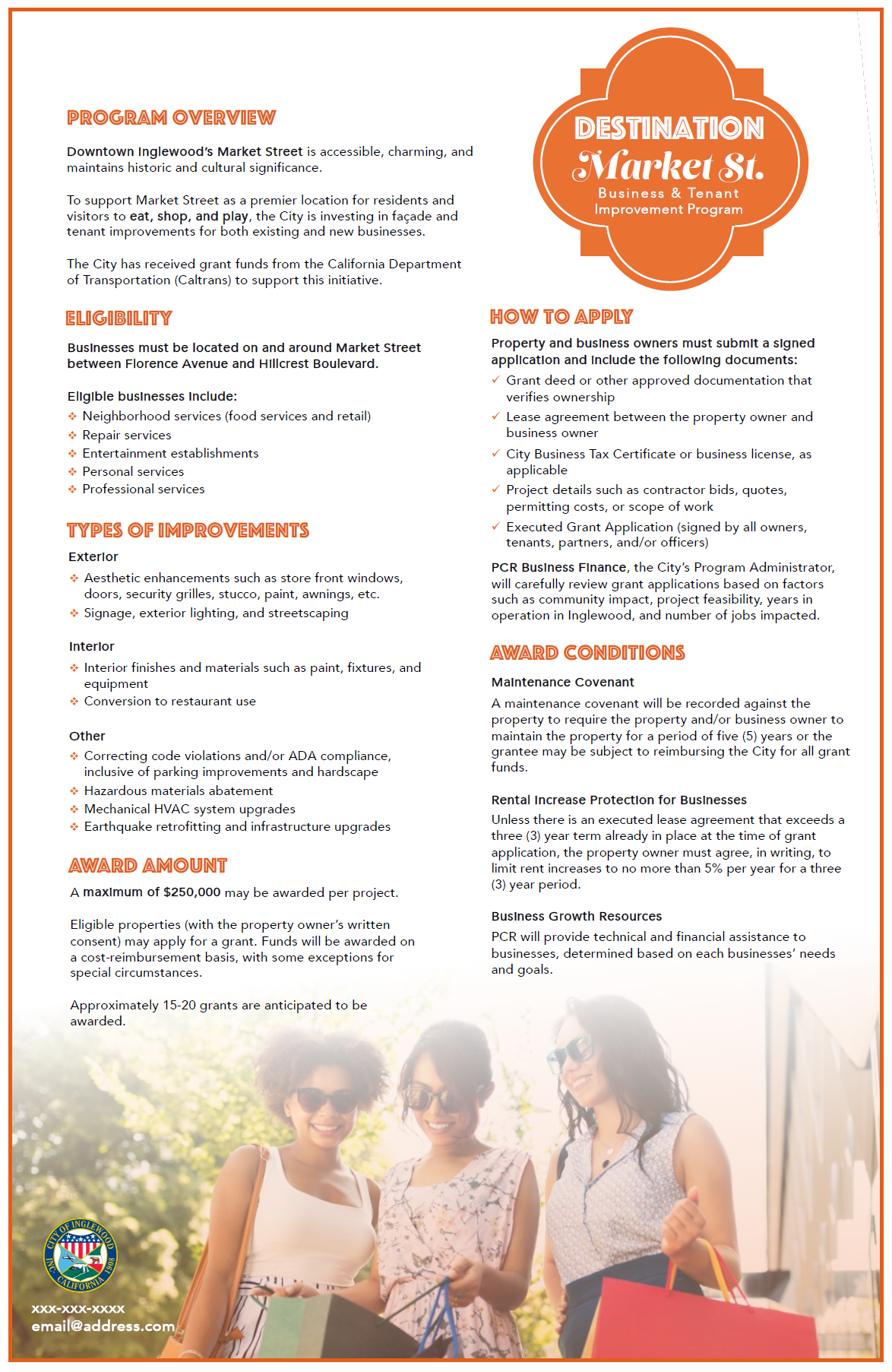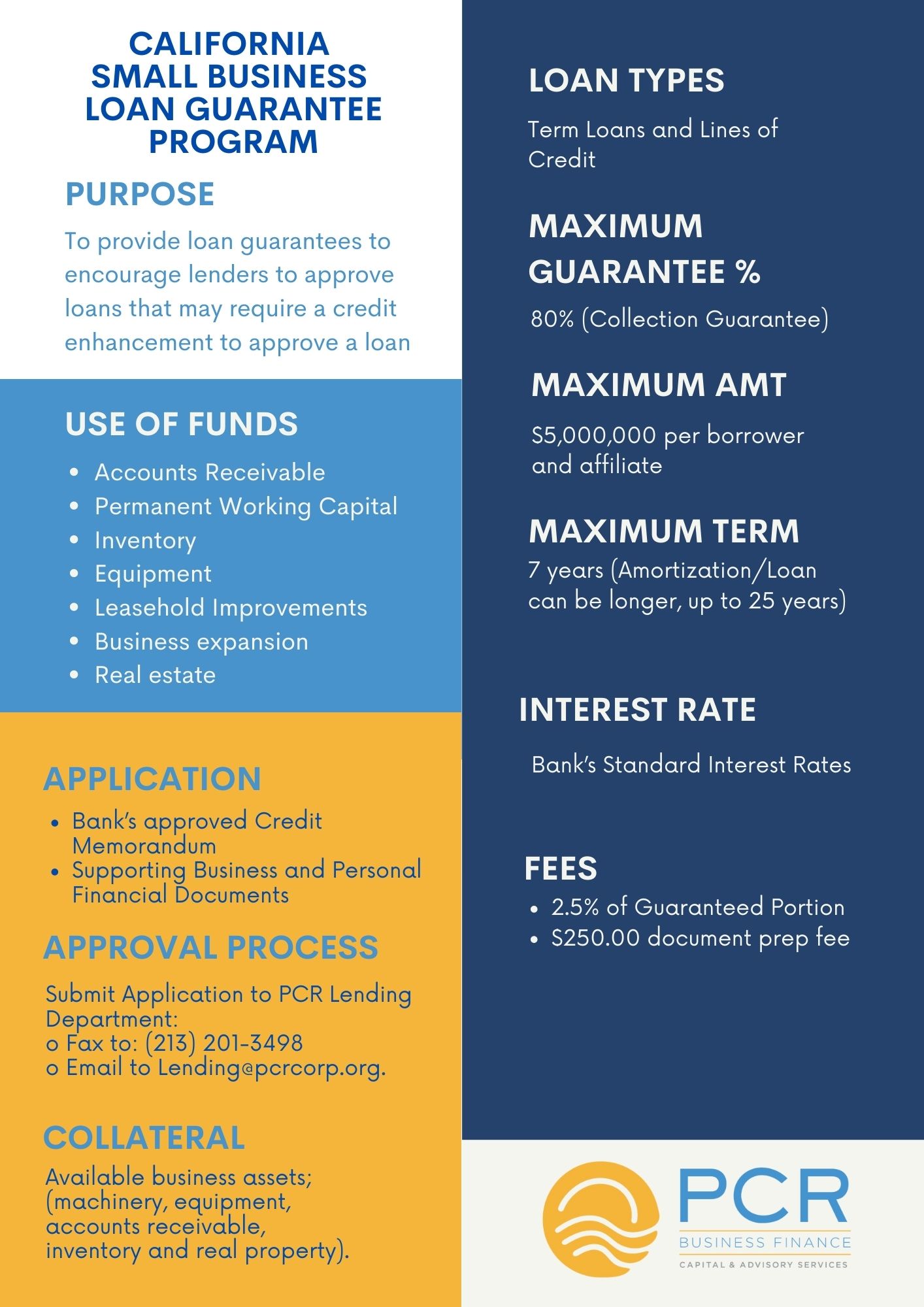— Metro Business Interruption Fund —
What is Metro’s Business Interruption Fund (BIF)?
Metro’s BIF is administered as a pilot program in partnership with PCR. PCR uses the BIF to provide financial assistance to small “mom and pop” businesses impacted by transit rail construction along the Crenshaw/LAX Transit Project, the Little Tokyo Regional Connector with its 2nd/Broadway segment, and Section 1, Section 2 and Section 3 of the Purple Line Extension and East San Fernando Valley.
Metro’s goal through the BIF is to help small businesses continue to thrive throughout construction and post construction. The BIF is a demonstration of Metro’s commitment to be a trusted community builder, partner and stakeholder.


What is the purpose of the Business Interruption Fund?
Transit rail construction can mean growth opportunities for small “mom and pop” businesses located along transit corridors; however, transit construction also can be challenging for small businesses. With the establishment of the BIF, Metro can provide financial assistance through PCR, as the Fund Administrator, to directly impacted small “mom and pop” businesses through grants to cover certain fixed operating expenses.
How much is available in the Business Interruption Fund?
Metro’s Board of Directors authorized the agency to designate $10 million annually to be used for implementation of the Business Interruption Fund.
How do businesses know if they are eligible to receive funds?
Metro has developed Administrative Guidelines for the BIF. There are various established procedures and provisions. Some key provisions include:
Relevant Metro construction projects:
- Crenshaw/LAX Transit Project
- Regional Connector, Little Tokyo area and the 2nd/Broadway segment
- Purple Line Extension Section 1, Section 2 and Section 3
- East San Fernando Valley
Definition of small “mom and pop” businesses:
Small business for the purposes of the BIF is defined as a for-profit business or non-religious, non-profit with 25 or fewer full-time employees.
Definition of eligible businesses:
Businesses eligible to receive assistance from the BIF include:
- Businesses located immediately adjacent to the rail corridor and directly affected by Metro construction.
- Businesses that meet the technical qualifications to participate in the program, including continuous operation for at least two years along the corridor, and ability to provide relevant financial records.
- Businesses must be solvent.
- Businesses must be in good standing with all local, state and federal taxing and licensing authorities.
Definition of ineligible businesses:
Some key types of businesses ineligible to participate in the BIF include:
- Non-profit businesses engaged in teaching, instructing, counseling or indoctrinating religion or religious beliefs.
- Businesses generating over 60% of revenues from the sale of alcoholic beverages.
- National or regional chain retailers or outlets, unless operated under a franchise agreement, and which otherwise meet all eligibility criteria.
Note : Residential property owners are not eligible to apply.
Geographic location of eligible businesses:
Business must be immediately adjacent to a transit rail corridor; refers to a business whose property line abuts or faces the rail corridor or a designated construction staging or construction storage area, including a business located in a mall or strip-mall that is similarly situated.
Who Can Apply?
Qualifying businesses shall be those with at least two years of continuous operating history, 25 or fewer full-time employees, in good standing with local, state and federal taxing and licensing authorities, and those able to produce relevant financial records (e.g. gross receipts, payroll taxes, bank statements or other financial information) demonstrating a loss of business revenue directly related to the period of construction disruption. It must be noted that BIF financial assistance is only available for those businesses directly impacted by the identified transit rail construction projects. Businesses located along any of Metro’s other lines do not qualify.
What amount of financial assistance can an impacted business receive?
Metro’s Board of Directors authorized the Agency to designate $10 million annually to be used for implementation of the Business Interruption Fund. Businesses may apply up to four times per calendar year and receive up to a maximum of $60,000 per impact year based on provable business revenue losses. The financial assistance covers fixed operating expenses such as:
- Utilities
- Insurance
- Rent or Mortgage
- Payroll
- Other types of eligible documented business-related expenses may be considered by the program administrator
- Commercial property owners may file, however; property owners may only file a claim for mortgage, utilities, insurance and other expenses as determined by the program administrator
How do I apply for financial assistance through the Business Interruption Fund?
For more information about the BIF including Quarterly Reports, Measures of Effectiveness and other program statistics, visit
https://metro.net/bif. Or email bif@metro.net.








